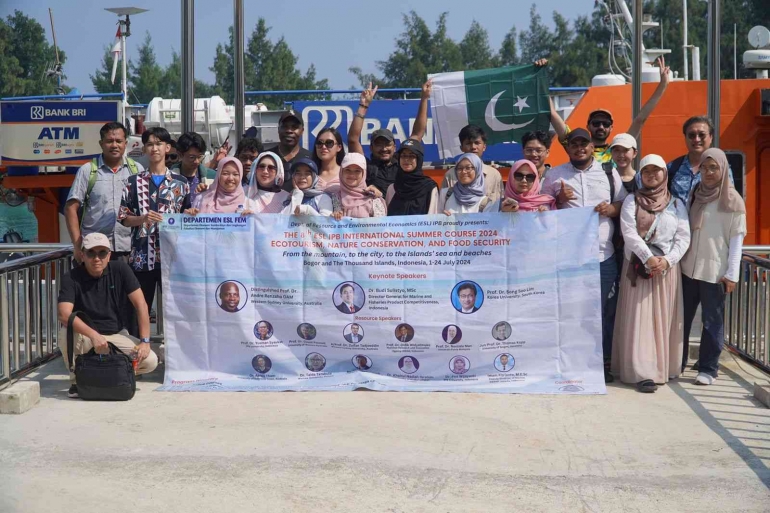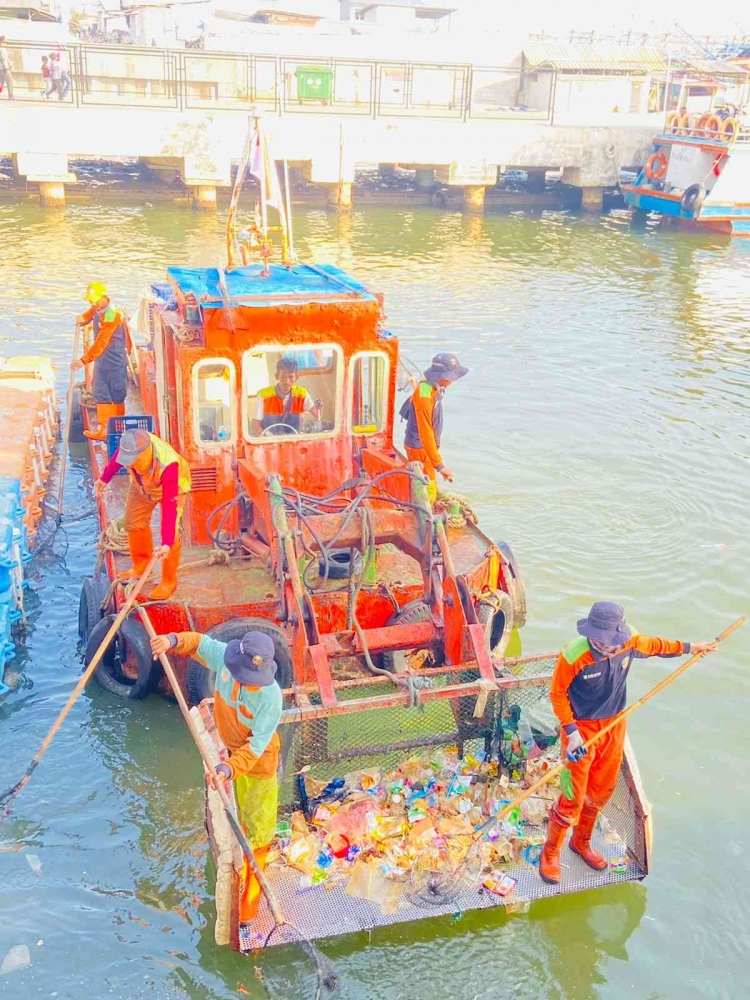Member:
- Rifdah Utami Hasna Nadhifah (@rifdahutami)
- Faidzul Anwar
- Muhammad Ali
- Asari Wahyu Utomo
On the border between natural tourism, nature conservation, and food security, There is a harmony or debate that arises, Between embracing synergy or being entangled in bargaining. Ecotourism in Tidung Island, Indonesia: Balancing Beauty and Environmental Challenges.
Pulau Tidung, located in the Thousand Islands archipelago off Jakarta, Indonesia, is renowned for its natural beauty and diverse marine life, making it a prime destination for ecotourism. However, beneath its picturesque surface lies a pressing environmental issue: the persistent arrival of waste, particularly plastic, transported by ocean currents from heavily populated areas in Java to the shores of Tidung Island.
The Charms of Ecotourism in Tidung Island. Ecotourism in Pulau Tidung thrives on its natural assets, offering visitors opportunities to snorkel among vibrant coral reefs, explore mangrove forests, and immerse themselves in the local culture of fishing communities. Community-driven tourism initiatives have empowered local residents, providing them with alternative sources of income and raising awareness among tourists about the importance of conservation.
The Hidden Challenge: Marine Debris from Java. Despite its natural splendor, Tidung island faces a significant environmental challenge: marine debris. Plastic waste, transported over long distances from densely populated areas in Java, accumulates along the island's coastlines.
This influx of trash not only detracts from the island's scenic beauty but also poses serious threats to marine life and fragile ecosystems. Plastic pollution endangers marine animals through ingestion and entanglement, disrupting ecosystems critical for tourism and fisheries.
Conservation Concerns, the issue of marine debris highlights broader conservation concerns in Pulau Tidung. Coral reefs, essential for biodiversity and fisheries, are particularly vulnerable to pollution and physical damage caused by marine litter. Similarly, mangrove forests, crucial for coastal protection and carbon sequestration, face degradation from plastic waste and other pollutants. Conservation efforts are vital to safeguard these ecosystems, preserving their ecological functions and supporting livelihoods dependent on marine resources.

Contamination of seafood poses risks to human health, heightening concerns about food safety. Addressing marine pollution is essential not only for maintaining ecological integrity but also for protecting the well-being of residents and tourists who depend on seafood consumption.
Choosing Synergy over Tradeoffs, Amid these challenges, the concept of synergy emerges as a guiding principle for sustainable development in Pulau Tidung. Synergy involves integrating conservation efforts with economic activities such as ecotourism and sustainable fisheries, aiming for mutually beneficial outcomes.
Integrated waste management is crucial, including efforts to reduce plastic use, improve recycling facilities, and promote community-led cleanup initiatives. Engaging local communities in waste management practices fosters a sense of responsibility and ownership.
Conservation education plays a pivotal role in fostering environmental stewardship among tourists and residents alike. Awareness campaigns, guided tours focusing on environmental issues, and educational programs in schools promote sustainability and responsibility. Promoting responsible ecotourism practices that respect ecological limits and cultural sensitivities ensures sustainable benefits.
Measures such as eco-friendly snorkeling and supporting community-based tourism enterprises contribute to conservation efforts while enhancing visitor experiences. Strengthening monitoring efforts and enforcing regulations on waste disposal and fishing practices are essential for effective environmental management. Collaborative governance involving government agencies, local communities, and businesses ensures compliance and accountability.
Tidung Island exemplifies the allure of ecotourism and the challenges posed by marine debris and environmental degradation. By embracing synergy integrating conservation, economic development, and community well-being Tidung island can achieve sustainable outcomes.
Preserving its natural beauty and ecological integrity requires concerted efforts from all stakeholders, prioritizing long-term sustainability over short-term gains. Through collective action and commitment to responsible stewardship, Tidung island can continue to thrive as a beacon of ecotourism while safeguarding its precious marine ecosystems for future generations.

Baca konten-konten menarik Kompasiana langsung dari smartphone kamu. Follow channel WhatsApp Kompasiana sekarang di sini: https://whatsapp.com/channel/0029VaYjYaL4Spk7WflFYJ2H
Artikel ini merupakan bagian dari Lestari KG Media, sebuah inisiatif untuk akselerasi Tujuan Pembangunan Berkelanjutan. Selengkapnya










